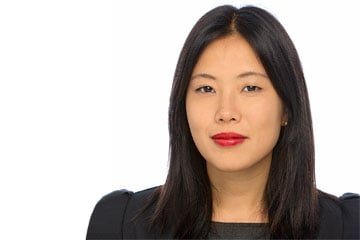
A group of lawyers is on the path to launching a legal clinic for Koreans in Ontario. An eight-person steering committee of articling students and licensees requested funding from the Law Foundation of Ontario for a six-month pilot project for a Korean Legal Clinic based in Toronto.

A group of lawyers is on the path to launching a legal clinic for Koreans in Ontario.
An eight-person steering committee of articling students and licensees requested funding from the Law Foundation of Ontario for a six-month pilot project for a Korean Legal Clinic based in Toronto. The project would give low-cost legal services to the Korean community, says Marie Jihee Park, a sole practitioner at Park Family Law in Toronto and president of the Korean Canadian Lawyers Association.
The 2016 census data shows that about a third of Ontario’s Korean population is considered low-income.
Although the Law Society of Ontario does not release separate statistics for lawyers of Korean and Japanese origins, the group estimates that there are between 400 and 500 lawyers of Korean origin in Ontario. The Korean population is about 2.3 per cent of visible minorities in Ontario, according to the 2016 census.
The KCLA has found through legal education sessions that the population has some specific legal needs, says Rosel Kim, a board member of the KCLA and in-house counsel in Toronto. For example, church leaders can sometimes play a big role in directing families toward resources in the community, and it can be helpful for a lawyer to be embedded in that community.
“As a young racialized lawyer, I always wanted to find a way to give back to my community. When I was an executive of the KCLA and was helping with organizing the legal education seminars for Korean community members, I remember thinking how it would be great to have a more permanent place,” says Kim.
Other issues include language barriers, families living across international borders, and work and housing rights. The pilot project steering group includes lawyers that focus on employment and refugee law, says Park, and will also work with groups such as the Federation of Asian Canadian Lawyers and the Korean Canadian Women's Association.
Park says the goal of the project is not only to provide services but also create Korean-language legal literature and get more data on the legal needs of the Korean-Canadian community. While many cultural community clinics work with Legal Aid Ontario, Park says there are no plans for that yet, given the recent budget cuts to legal aid from the provincial government.
For her, working with Parkdale Community Legal Services and trying to find interpreters to aid clients in getting social assistance showed the huge impact lawyers can have, says Park. She also pointed to the proposed closure of Rose of Sharon Korean Long Term Care Facility, which made headlines and created a rallying cry in the local community.
“I think for a lot of lawyers it showed the importance of community advocacy,” says Park.